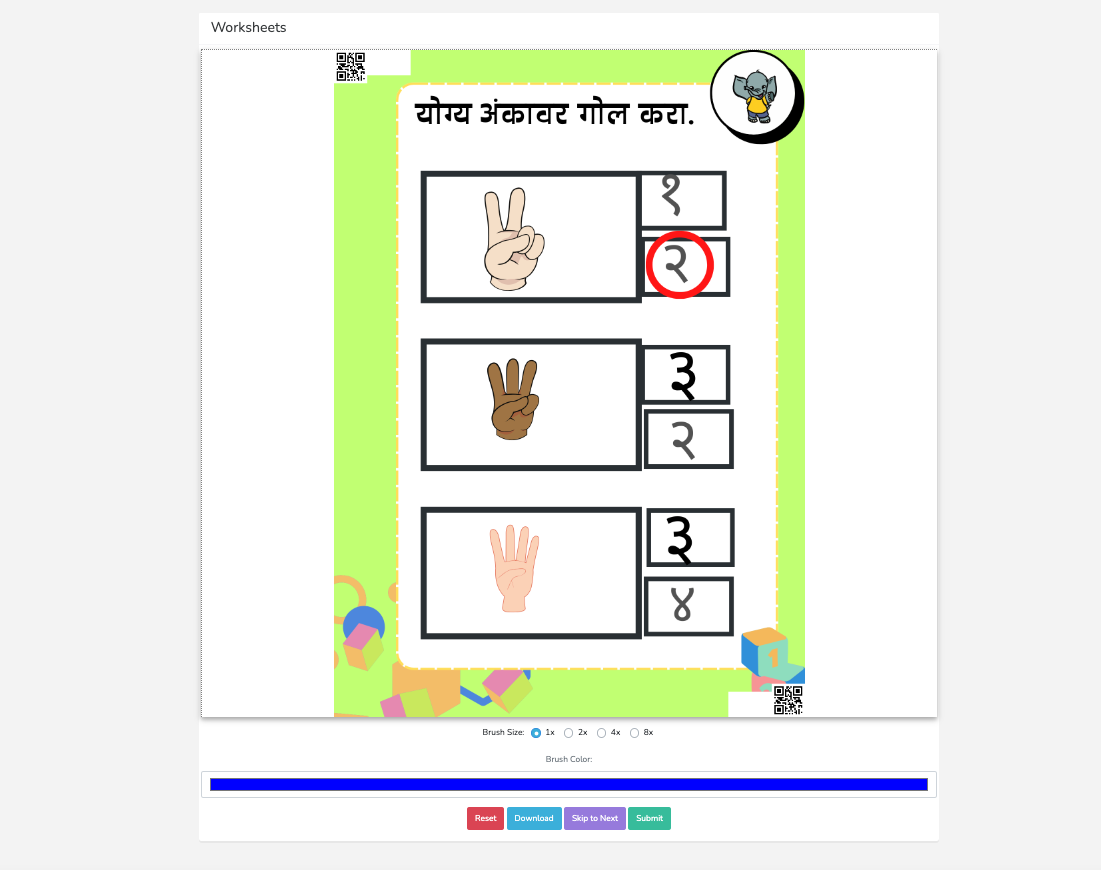Fixing trainee collaborate with AI is typically a theoretical discussion in the united state, however in India, Rocket Understanding, a New Delhi-based edtech and youth nonprofit, is giving instantaneous responses on 50, 000 worksheets daily. This assists to supply support for some three million students under age six that may not otherwise get it.
The AI grading device offers feedback to trainees on digital homework– as an example, in one exercise, trainees are given a worksheet with images of a number of hands holding up varying amounts of fingers. They are asked to circle every hand that is standing up 2 fingers, using an electronic mapping out tool. The AI tool then remedies the job, letting them know the options they missed.
The evaluation tool is part of the comprehensive very early childhood learning program Rocket Learning runs in partnership with greater than 200, 000 day cares in 10 Indian states that pairs instructors with tiny groups of parents that link via online communities. The program’s objective is to aid parents teach their kids early discovering proficiencies.
The AI grading tool was established with the assistance of a $ 1 5 million Google.org give, and as component of that, Google experts are aiding Rocket Knowing create an AI tutor for the program that makes use of artificial intelligence. In the meantime, there are several lessons for educators from the AI grading tool currently deployed, says Vishal Sunil, CTO and co-founder at Rocket Understanding.
AI Grading: Perfect Precision Isn’t Necessarily Needed
Somehow, an ideology behind Rocket Discovering’s grading device is not to allow the best be the adversary of the good. The tool’s precision ranges from concerning 90 % to 95 % relying on the sort of problem.
“It’s not a large deal if it obtains it wrong,” Sunil claims. This is because informing the individual that incorrect answers can occur becomes part of the experience. Actually, wrong solutions can also foster even more communications between trainees and human teachers. Sunil says customers are informed, “Hey, if you got it wrong, ask your educator concerning it,” or “Call this number.”
“That’s likewise an involvement device in some ways,” he adds.
A Method To Reply To More Pupils
Releasing the AI grading device has actually boosted the quantity of comments trainees are obtaining dramatically. Previously, less than 5 % of worksheets were graded, Sunil states. Currently with the assistance of the device, all job is replied to immediately.
This not just aids students find out in real-time, Sunil states, however it has resulted in raised utilization of the system and more interaction between households working with Rocket Discovering. This tool is deployed together with a suite of devices that offer tailored issues for students and incorporate gamification.
“It’s a high involvement, low-stress way to involve and analyze where a youngster is,” Sunil says.
Rocket Learning’s AI worksheet grading tool is open source, and the nonprofit intend to make workouts available in English and various other languages in the future.
Overall, Sunil thinks AI technology, especially generative AI, has a great deal of potential to assist low-income pupils, and pupils generally. However to measure up to its full possibility, he thinks the education area needs to be aggressive rather than reactive.
“Edtech has actually been really, very shy concerning using generative AI– it’s been more like it’s been impacted by it, it’s not been designed by us,” he claims. “The whole education landscape has been changed by it.” Nevertheless, this change has been unintended and mostly outside of teachers’ control.
Sunil thinks that with the right style, edtech can begin leading this change as opposed to living through it. “It is possible to safeguard rail and to create these generative experiences utilizing LLMs that could conserve a great deal of human time and effort,” he states.


